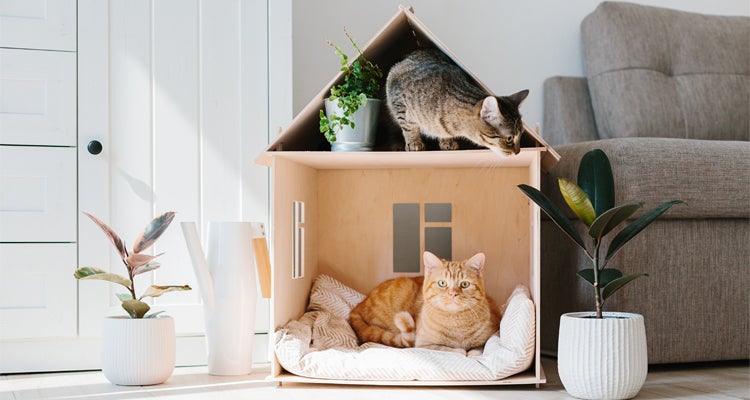
Kittens need their rapid growth and development supported through specially tailored nutrition found in kitten food until they reach 12 months of age. At 1-year-old a kitten is considered an adult cat and can transition gradually over to a complete and balanced adult cat food. Adult food is available for indoor cats too, the nutrients are tailored to deliver different energy requirements to that of a cat that has access to the outdoors.
How to transition your kitten onto adult cat food:
When your kitten is 12 months old, it is advisable to gradually transition them over from kitten food to adult food. Follow these tips for transitioning kittens to adult food to avoid digestive upset. This should be done over a 7 day period in order to introduce the new food solely to help avoid digestive upset with the change in diet.
How to make the switch: Start on day 1 by replacing about a sixth of the current kitten food with new adult food. Increase this gradually over the next 5 days so that by day 7 the entire portion of kitten food has now been replaced with adult food.
Feeding a mixture of wet and dry foods:
Did you know?
Wet food contains about a quarter of the calories of dry food, which allows owners to give their cats larger meals with a reduced risk of overfeeding. Wet food delivers benefits for the urinary tract health of cats because of its high moisture content.
Owners typically like feeding their cat wet food as it looks like a more substantial meal. Dry food can help to mechanically remove dental plaque when the crunchy kibbles are chewed by the cat. There is a growing number of cats that are overweight, replacing some dry diet with wet food as part of their meal mix is one way to reduce calories consumed per meal.
What human foods are toxic to cats?
Some human foods that are perfectly safe for us to eat can be highly toxic and dangerous for cats, so be sure never to let your cat eat any of the following:
• Chocolate
• Grapes
• Raisins
• Caffeine
• Onions
• Garlic
If your cat does consume any of these things, please seek veterinary attention immediately.












